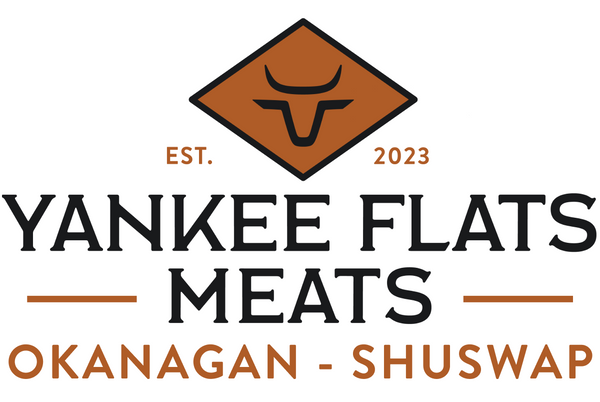Lately, you may have seen some headlines about cloned meat possibly entering Canadian grocery stores - and, to our surprise, we’ve had a couple of people ask: Does Yankee Flats Meats use cloned animals? We care deeply about trust, transparency, and local farming, so we wanted to provide some information that goes further than headlines.
What Is Cloned Meat, Really?
Cloning in livestock isn’t the same as “lab-grown meat.” What people usually mean by cloned meat is genetic copying of an animal through a process called SCNT (somatic cell nuclear transfer) - essentially creating a genetic twin of a donor animal. That animal then grows up just like any normal animal.
In many cases, the goal isn’t to raise the cloned animal for meat. Instead, it’s used for breeding. Producers clone an animal with exceptional traits, implant the cloned embryo into a surrogate mother, bring it to term, and then use the clone’s offspring in their herd.
In comparison (and where much of the confusion lies), "lab-grown meat" is made from a small sample of cells grown outside the animal. Cloned meat can be considered natural animal, while lab-grown meat is a product grown in a lab.
Policy & Safety in Canada
In Canada, the rules around cloning are shifting. Health Canada and CFIA recently proposed updated policies that would remove cloned cattle and swine from the “novel food” category, meaning cloned-offspring meat may no longer need special labeling or pre-market safety reviews. Although, recently, Health Canada has indefinitely suspended a proposed update to the novel food policy governing foods derived from cloned cattle and swine, as well as their progeny.
That said, according to scientific reviews, there are no known significant nutritional or health differences between meat from cloned-offspring animals and meat from traditionally bred animals.
Why Cloning Isn’t Something We See on Small Farms
Simply due to the high cost and complexity of this process, most Canadian farmers do not use cloning tactics. It is a niche and extremely expensive tool that may be used by larger breeding operations for high-value animals - not by small family farms looking to raise meat.
Plus, cloned animals are often used as breeding stock, not meat animals - their offspring (through natural breeding) are more likely to enter the food chain.
For a community-driven, family farm operation like us, the economics and philosophy simply don’t line up with using cloned livestock.
How We Do Things at Yankee Flats Meats
Let us be absolutely transparent: we do not use cloned animals in our supply chain.
At Yankee Flats Meats, our beef comes from farming families who raise their cattle the old-fashioned way - with traditional breeding methods rooted in care, sustainability, and respect for the land. On our own farm, we maintain free-range bulls and heifers, allowing them to grow naturally on open pasture the way cattle were meant to. This approach supports healthy animals, high-quality meat, and a farming system that stays true to local values.
What This Means for You
At YFM, we lean into trust, care, and accountability. We want you to feel confident in knowing exactly where your meat comes from. If you ever want to dive deeper - about our farmers, our processes, or who we work with - just ask. We’re here.
Our commitment remains the same: quality, local, real meat from farmers who care. That’s what’s important to us, and we hope it matters to you too.
Sources to explore:

